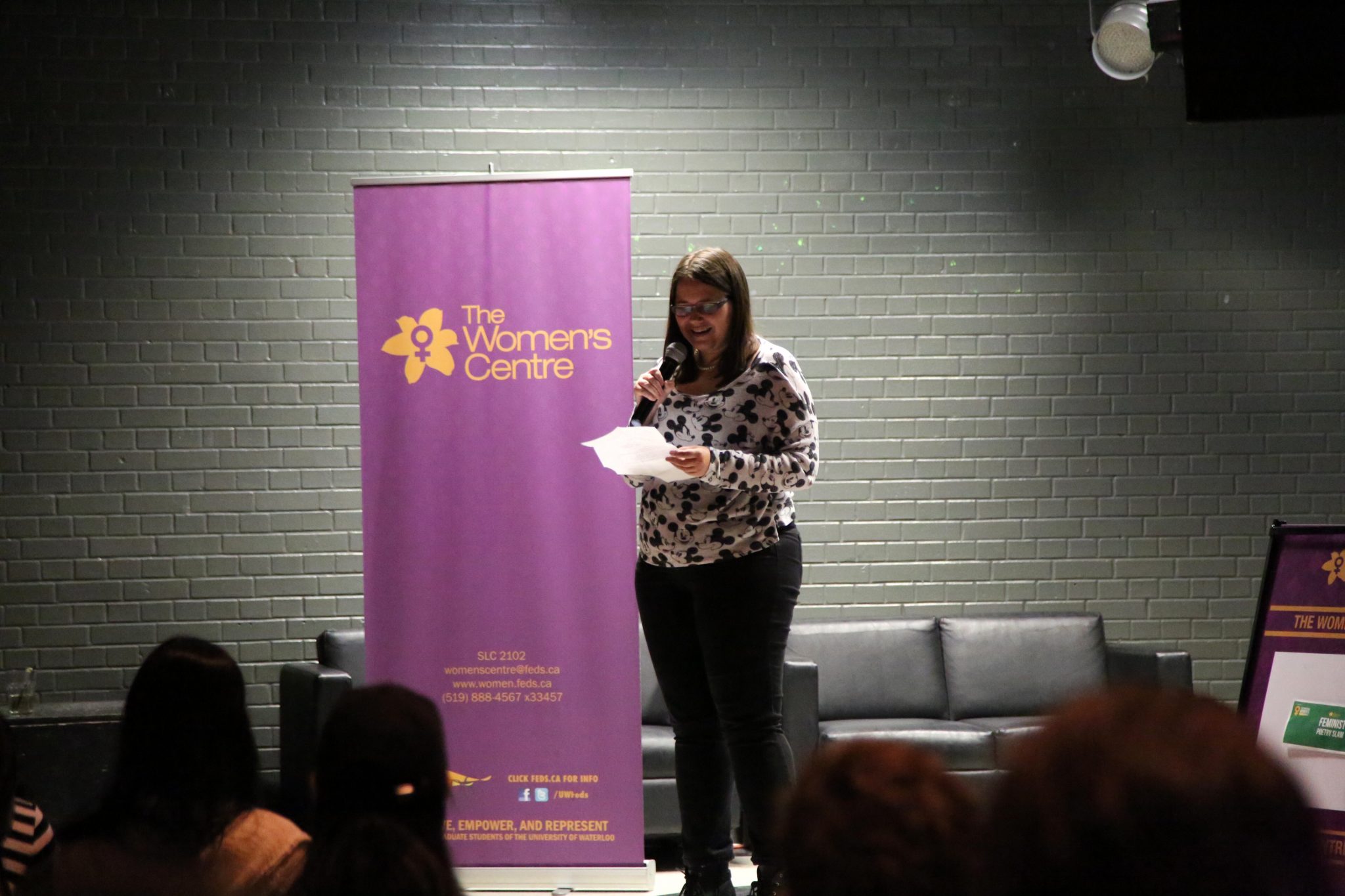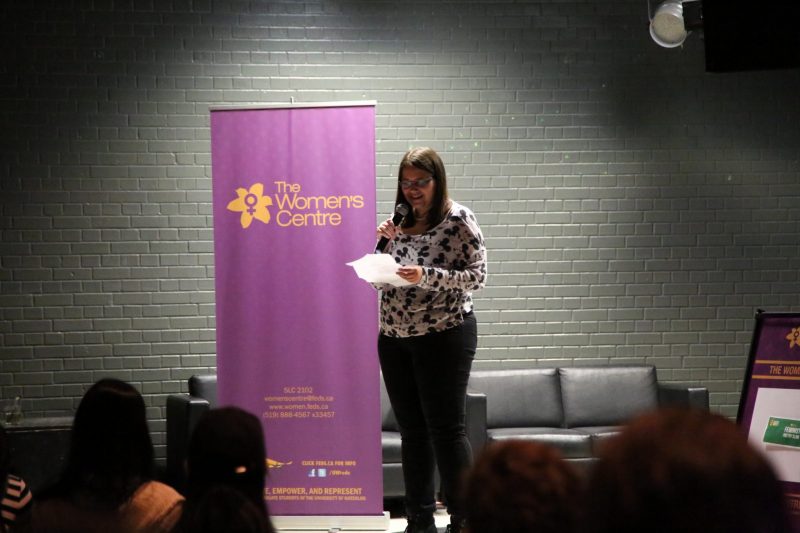Feminist poetry slam emphasizes the importance of an inclusive agenda


“Understand that the poets are giving all that they’ve got. There’s going to be blood, but that’s okay,” Samantha Estoesta, University of Waterloo alumna and former executive director of LSPRIG, said on March 6 during a poetry slam at the University of Waterloo’s pub, The Bombshelter.
“Spoken word, as a medium, is meant to be very community orientated. It’s very much based on being supportive, which is where you see the snaps and claps.”
This was said during an interlude of poets, where there was also a chance to win a copy of Canadian poet Rupi Kaur’s Milk and Honey in a draw.
The event was put on by the UW’s Women’s Centre. The theme of the night was feminism and all that the broad subject encompasses.
There were 15 speakers, all with their own viewpoints and personal stories to tell and all with a completely enraptured audience.
It was a full house at The Bombshelter and the audience was nothing short of supportive to those performing.
As waiters and waitresses zipped around, those in attendance snapped along respectfully and applauded the bravery shown as the poets spoke of personal subjects such as childhood abuse and sexual assault.
Given the nature of the poems, there were volunteers on standby, ready to assist anyone who had been triggered during the poetry during the difficult topics. The setting, a bar on a university campus, could have been a difficult place for those who have experienced sexual assault.
However, for the night, it was turned into a safe-space of acceptance and understanding. Alongside the support staff, speakers administered trigger warnings at the beginning of their poems. Which gave listeners a chance to quietly exit or seek assistance from the volunteers.
The sense of community and support that night was undeniable.
Other topics of the night were abortion, periods, what femininity is, as well as bi-erasure.
Feminism isn’t always an easy subject; like any movement, there is strife within it as people take different viewpoints on what it means to be a feminist. There was a clear focus from the Women’s Centre, who orchestrated the event, on the importance of inclusivity and highlighting the intersectionality within feminism.
Showcasing the diversity within feminism also aided the deconstruction: a very single-minded; and; at times; ignorant form of feminism commonly known as “white feminism.”
The event didn’t end with female poets but instead, the Women’s Centre opened its doors to include male feminists as well. While there was only one male poet, he spoke on his ongoing realization to the world of privilege he lived in, as compared to his sister.
Many men could be seen in the audience aptly listening and snapping along when something they heard resonated with them. The inclusion of men proved to those in attendance that feminism isn’t solely a movement for women.
“The Women’s Centre planned this event, so we like to make sure that our events are as intersectional as possible,” Mallika Patil, coordinator for the Women’s Centre said.
Samantha Estoesta, the headliner for the evening, particularly focused her work on the experiences she’s had with a multi-racial identity. While this wasn’t her first time headlining an event put on by the Women’s Centre, she did say it would be her last.
“I want to highlight someone else’s work … that’s how you continue growth.”
Estoesta also encouraged poets that spoke on Monday night, or those who are more interested in slam poetry to seek out K-W poetry slam, which offers artistic expression to those in the community.

